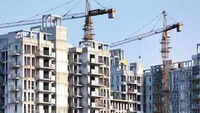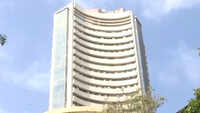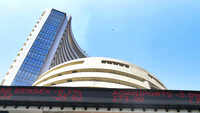
MUMBAI: The RBI has said that of the 1.3 lakh depositors of CKP Co-operative Bank, about 99.2% will get full payment of their deposits from the Deposit Insurance and Credit Guarantee Corporation.
On Saturday, the RBI had announced that it has cancelled the licence of CKP Co-op Bank with effect from April 30 and has asked the registrar of cooperative societies to initiate winding up proceedings and appoint a liquidator for the bank.
The 105-year old cooperative bank had eight branches spread across Mumbai and Thane. Its name is an abbreviation of Chandraseniya Kayastha Prabhu, the Maharashtrian community that started the bank.
The cooperative lender on its website has said that it 55 wilful defaulters owe more than Rs 209 crore. It has named Vijay Vaidya of Nanai Dairy and Avishkar Developers, Dinesh Shah of Labdhi Corporation, Dyandev Salunkhe of Siddharth Dairy and Phulchand Jagtap of Siddharth Dairy as top defaulters. “CKP Co-op bank has been under the all-inclusive direction of the RBI since 2014. As there was no scope for the revival of the bank, its licence has been cancelled,” a bank spokesperson said in a statement on Twitter.
This is the first time the central bank is triggering the higher deposit insurance limit, which came into effect after the Union Budget in February 2020.
According to the bank’s website, its deposits stood at Rs 485 crore as on November 2019, while loans outstanding were Rs 161 crore. It had a negative net worth of Rs 239 crore due to defaults.
“The financial position of the bank is highly adverse and unsustainable. There is no concrete revival plan or proposal for a merger with another bank. Credible commitment towards revival from the management is not visible,” the RBI said.
“The bank is not in a position to pay its present and future depositors, thereby not complying with the law,” the central bank said. Central bank officials said that the bank could not be allowed to restart operations as it did not have the minimum required capital adequacy and reserves and there was no earning potential.
According to RBI spokesperson the affairs of the bank were and are being conducted in a manner detrimental to the public interest and interest of the depositors and that the general character of the management of the bank is prejudicial to the interest of depositors as also public interest.
On Saturday, the RBI had announced that it has cancelled the licence of CKP Co-op Bank with effect from April 30 and has asked the registrar of cooperative societies to initiate winding up proceedings and appoint a liquidator for the bank.
The 105-year old cooperative bank had eight branches spread across Mumbai and Thane. Its name is an abbreviation of Chandraseniya Kayastha Prabhu, the Maharashtrian community that started the bank.
The cooperative lender on its website has said that it 55 wilful defaulters owe more than Rs 209 crore. It has named Vijay Vaidya of Nanai Dairy and Avishkar Developers, Dinesh Shah of Labdhi Corporation, Dyandev Salunkhe of Siddharth Dairy and Phulchand Jagtap of Siddharth Dairy as top defaulters. “CKP Co-op bank has been under the all-inclusive direction of the RBI since 2014. As there was no scope for the revival of the bank, its licence has been cancelled,” a bank spokesperson said in a statement on Twitter.
This is the first time the central bank is triggering the higher deposit insurance limit, which came into effect after the Union Budget in February 2020.
According to the bank’s website, its deposits stood at Rs 485 crore as on November 2019, while loans outstanding were Rs 161 crore. It had a negative net worth of Rs 239 crore due to defaults.
“The financial position of the bank is highly adverse and unsustainable. There is no concrete revival plan or proposal for a merger with another bank. Credible commitment towards revival from the management is not visible,” the RBI said.
“The bank is not in a position to pay its present and future depositors, thereby not complying with the law,” the central bank said. Central bank officials said that the bank could not be allowed to restart operations as it did not have the minimum required capital adequacy and reserves and there was no earning potential.
According to RBI spokesperson the affairs of the bank were and are being conducted in a manner detrimental to the public interest and interest of the depositors and that the general character of the management of the bank is prejudicial to the interest of depositors as also public interest.
Download
The Times of India News App for Latest Business News
Subscribe
Start Your Daily Mornings with Times of India Newspaper! Order Now
more from times of india business
Quick Links
ELSS Mutual Funds BenefitsIncome Tax Refund statusWhat is AssochamITR Filing Last DateHome Loan EMI TipsHome Loan Repayment TipsPradhan Mantri Awas YojanaTop UP Loan FeaturesIncrease Home Loan EligibilityHome Loan on PFTax Saving Fixed DepositLink Aadhaar with ITRAtal Pension YojanaNita AmbaniIndian EconomyRBIAadhaar CardSBIReliance CommunicationsMukesh AmbaniIndian Bank Ifsc codeIDBI Ifsc codeIndusind ifsc codeYes Bank Ifsc CodeVijay Bank Ifsc codeSyndicate bank Ifsc CodePNB Ifsc codeOBC Ifsc codeKarur vysya bank ifscIOB Ifsc codeICICI Ifsc codeHDFC Bank ifsc codeCanara Bank Ifsc codeBank of baroda ifscBank of America IFSC CodeBOM IFSC CodeAndhra Bank IFSC CodeAxis Bank Ifsc CodeSBI IFSC CodeGST
Get the app








